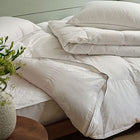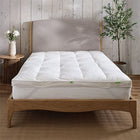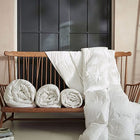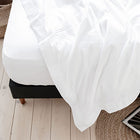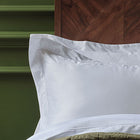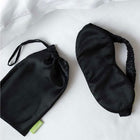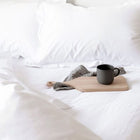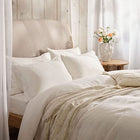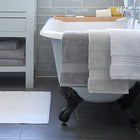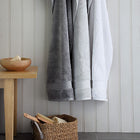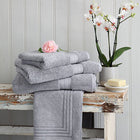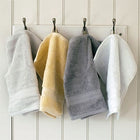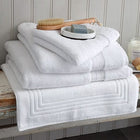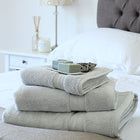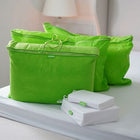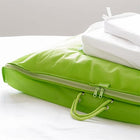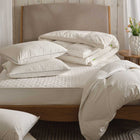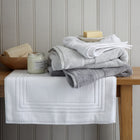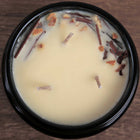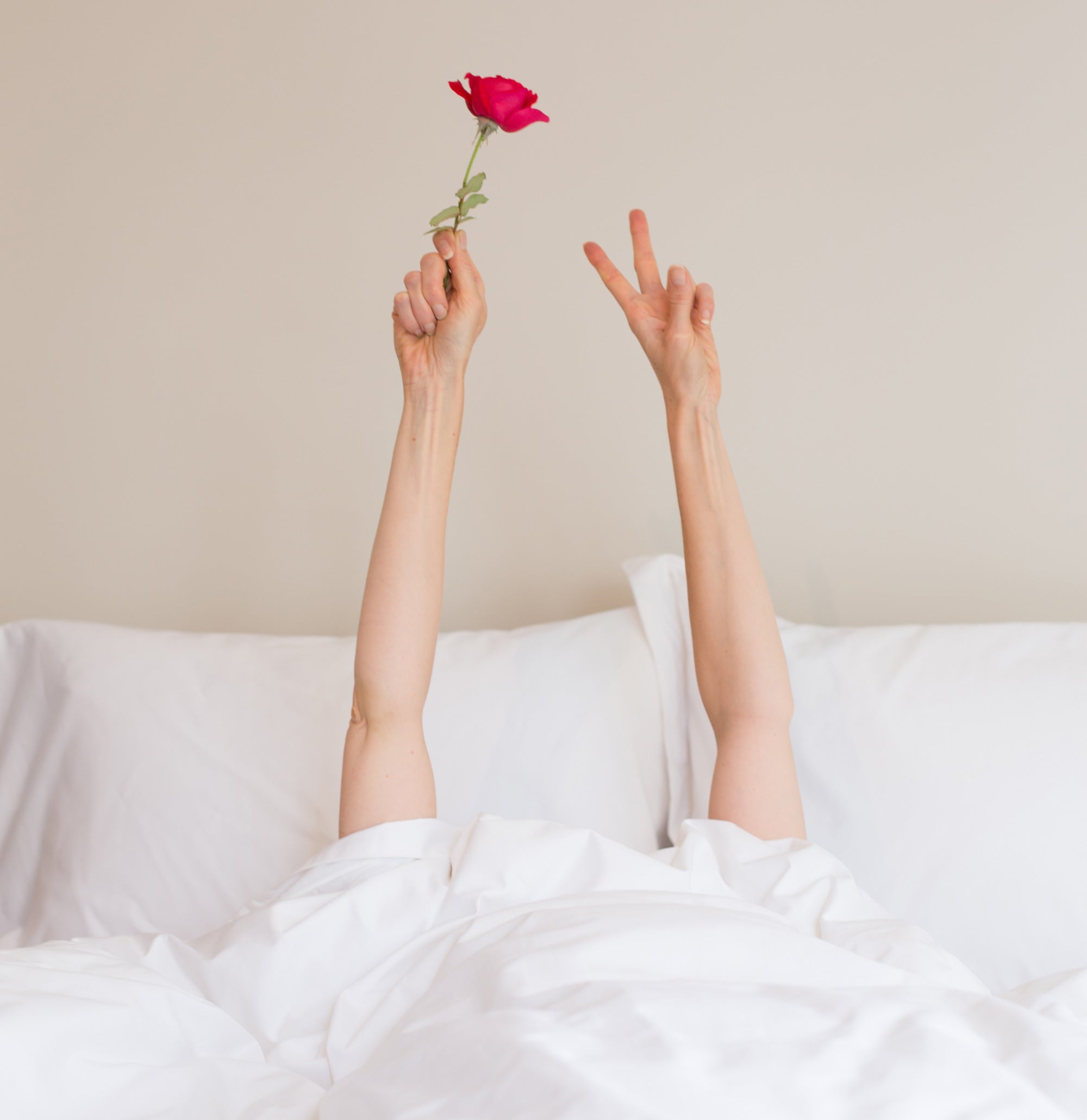
How to get a better night's sleep
Regularly getting the right amount of quality sleep is as important as nutrition and exercise for a healthy lifestyle. If you take up our 16 healthy sleep habits you will feel healthier, more energised and more productive. Amazing!
So, what are you waiting for, read on and get started!
- Keep a consistent sleep/wake schedule
- Set an alarm to go to bed
- Get the right bedding
- Take care of your bedding
- Go for a walk in the morning
- Get regular exercise each day
- Choose the right temperature for your bedroom
- Only use the bedroom for sleep and relaxation
- Power down an hour before bed
- Position your alarm clock correctly
- Don’t drink caffeine or alcohol before bed
- Don’t smoke before bed
- Avoid going to bed hungry
- Avoid heavy meals when it’s late
- Skip the nap
- Develop a bedtime routine
Keep a consistent sleep and wake schedule
Even on weekends! Try to go to bed and wake up at the same time every day. Staying up later or sleeping in later than normal can disrupt your body’s natural clock. It's one of the reasons why Monday mornings can seem tough as we often break our sleep cycle over the weekend.
Set an alarm to go to bed
If you find yourself consistently going to bed too late, consider setting yourself an alarm to go to bed. Resist the urge to hit the snooze button, as sleep between the snooze alarm is just not high-quality sleep. The snooze button often disturbs REM sleep, which can make us feel more groggy than waking up during other stages of sleep.
You don’t have to leap out of bed in the morning, but setting the alarm for a slightly later time and skipping a snooze cycle or two could bring big benefits.
Get the right bedding
You spend around a third of your life in bed ,so having the right bedding is key to a good night's sleep. The Scooms duvet and pillow are designed to help you sleep better!
Take care of your bedding
Dust mites might just love your pillows even more than you do. In some people, the build up of these bugs can trigger allergic reactions that make it harder to sleep.
Clean your duvets and pillows every 6 to 12 months and replace your pillows every 12 to 24 months. See our guide.
Go for a walk in the morning
In the morning exposure to the sun (or indoor light) won’t just give you an energy boost, it can also reset your circadian rhythm. A quick outdoor stroll in the morning will give you enough sun exposure to signal to your brain that it’s time to start the day.
No time to walk? Simply raise the blinds or switch on your brightest light instead.
Get regular exercise each day
But not just before bed! Getting at least 30-40 minutes of daily exercise can help you get to sleep and improve the quality of your sleep.
Choose the right temperature for your bedroom
A room that’s too hot and a room that’s too cold can both disturb a good night's sleep. Aim to keep your room temperature at approximately 18C or between 15C and 20C.
Only use your bedroom for sleep and relaxation
Make sure your bedroom is a relaxing, quiet and peaceful environment that is conducive to sleep. Don’t watch TV in bed or work on the computer as these activities will over stimulate your brain and make it harder to get to sleep.
Power down an hour before bed
Dim the lights and turn off all your devices; smartphones, laptops, TVs, all of which belong outside the bedroom, about 60 minutes before bedtime. Bright or blue light is one of the biggest triggers on our brains that it’s time to be awake and alert, so start sending the opposite signal early.
Position your alarm clock correctly
Watching the seconds and minutes of a clock tick by as you try to fall asleep can increase your stress levels. This will make it harder for you to fall back to sleep once you’ve woken up.
If you still can’t sleep, read or listen to soothing music until you’re tired enough to fall back to sleep.
Don't drink caffeine or alcohol before bed
Caffeine interferes with pathways in the brain that promote sleep. Alcohol can help initiate sleep but it also fragments sleep, causing earlier wakening, more frequent bathroom trips and perhaps inducing or worsening snoring.
Don't smoke before bed
Nicotine is a stimulant. What’s more, it would be extremely dangerous to fall asleep with a lit cigarette.
Avoid going to bed hungry
It will be hard to get to sleep if your stomach is rumbling! A light snack or milky drink will help to reassure your body that you are not starving. It is important not to eat too much before you go to sleep however.
Avoid heavy meals when it's late
Your body isn’t meant to be digesting while you sleep, so a big meal too close to bedtime may keep you up at night. Protein is especially hard to digest.
Skip the nap
Sleeping during the day makes it harder to fall asleep at night. If you must, limit your snooze session to 20-30 minutes and give yourself at least four hours between the nap and when you plan to go to bed.
Develop a bedtime routine
Creating a set of habits to run through at night will help your body recognise that it’s time to unwind. For instance, 30 to 60 minutes before bed, read in bed or take a warm shower or bath.
The warm water trick is particularly helpful – as you cool off, the drop in your body temperature will help you to feel sleepy!
Take up these sleep habits and get a better night's sleep!
Top sleep FAQs:
How to get to sleep? Our sleep tips:Keep a consistent sleep/wake schedule. Set an alarm to go to bed. Resist the urge to hit the snooze button. Go for a walk in the morning. Get regular exercise each day. Choose the right temperature for your bedroom. Develop a bedtime routine. Don’t drink caffeine or alcohol before bed. What temperature should my bedroom be for the best sleep?Aim for somewhere between 15C and 20C How much sleep do I need?New born babies - 14 to 17 hours sleep. Infants - 12 to 15 hours sleep. Toddlers - 11 to 14 hours sleep. Pre-schoolers - 10 to 13 hours sleep School-aged children - 9 to 11 hours sleep. Teenagers - 8 to 10 hours sleep. Young adults and adults - 7 to 9 hours sleep. Adults - 7 to 9 hours sleep. Over 60's - 7 to 9 hours sleep. |
